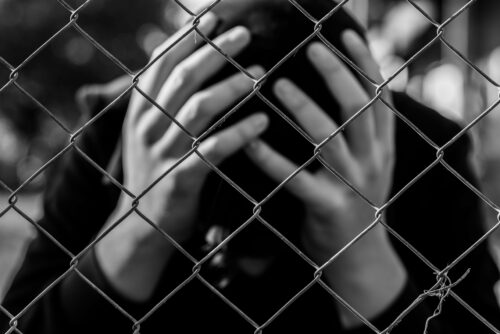
When a juvenile is accused of a crime, many people wonder how the court handles their cases. Sometimes, a youth offender’s criminal actions may be severe enough that their case is transferred to adult criminal court. While most juvenile delinquents are not tried as adults, there are exceptions, meaning a child as young as thirteen could be charged and tried as an adult, putting their entire future at risk. If your child has been accused of a crime, you need a skilled Nassau County Juvenile Crimes Lawyer to help you safeguard your child from an uncertain future. Please continue reading to learn when a juvenile can be charged with a felony in New York.
What’s the difference between a juvenile delinquent and a juvenile offender?
In New York, children aged 16 and below who are accused of committing crimes are dealt with in Juvenile Delinquency proceedings of the Family Court instead of being tried as adults in criminal court. A child over seven years old but under 16 years old who is arrested is typically charged with committing a delinquent act. Due to their young age, they usually are not responsible for their criminal acts due to their infancy and inability to fully comprehend the consequences of their actions. In most cases, juvenile delinquents will receive a sentence involving treatment or confinement alongside a certain level of supervision to prevent the child from committing the same criminal acts in the future.
However, there are exceptions for 13, 14, and 15-year-olds as they can be considered juvenile offenders. In such cases, even children of this young age can be prosecuted and tried as adults for extremely serious felonies. Juvenile offender adjudication is handled differently than juvenile delinquency. The prosecution is essentially permitted to treat a child the same way they would treat an adult charged with the same offense. Juvenile cases are heard in the Youth Part of the Supreme or County Court. If a juvenile offender is convicted, they will face less severe penalties than adults. They will, however, have a permanent criminal record unless the court grants youth offender status. Therefore, a juvenile offender can be charged with a felony in New York. It is imperative to note that the court may allow for a reverse waiver, which transfers a child’s adult case back to Family Court.
What is a youthful offender?
If an individual is charged with an alleged crime between the ages of at least sixteen and less than nineteen, they can be considered a youthful offender. Youthful offender status allows a youth to avoid the consequences of a permanent criminal record. When a juvenile is being sentenced, the court will determine whether or not to grant youthful offender status as it can relieve the youth from the onus of having a permanent criminal record. If granted, the records will automatically be sealed upon adjudication, meaning they will not have a criminal record. The youthful offender status instead replaces the criminal conviction.
Unfortunately, children make mistakes that, if not handled properly, can negatively impact the rest of their lives. If your child is accused of a crime, it is in your best interest to retain the legal services of a talented lawyer from the legal team at Grunwald & Seman, P.C., who can help you fight to have your child’s case knocked back down to Family Court.
